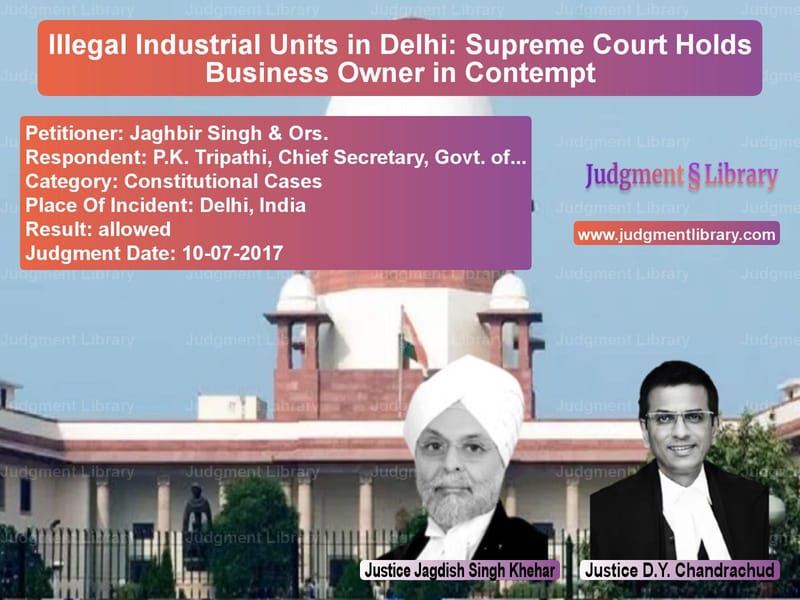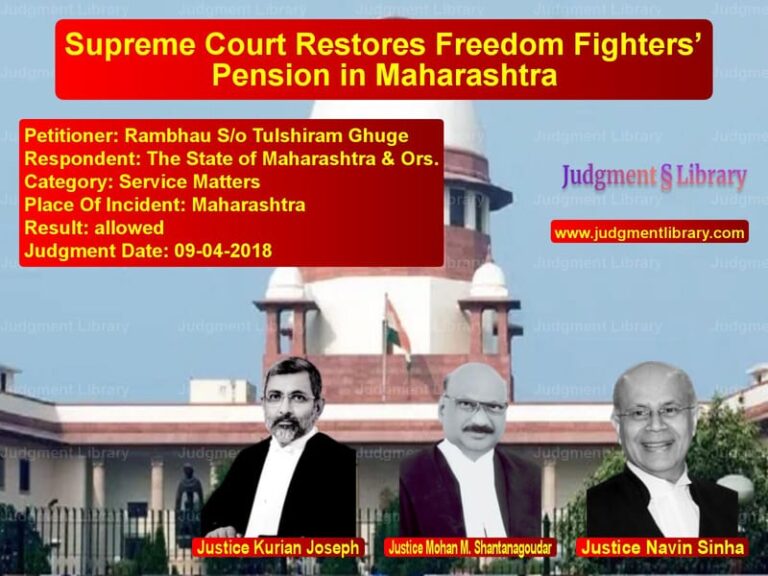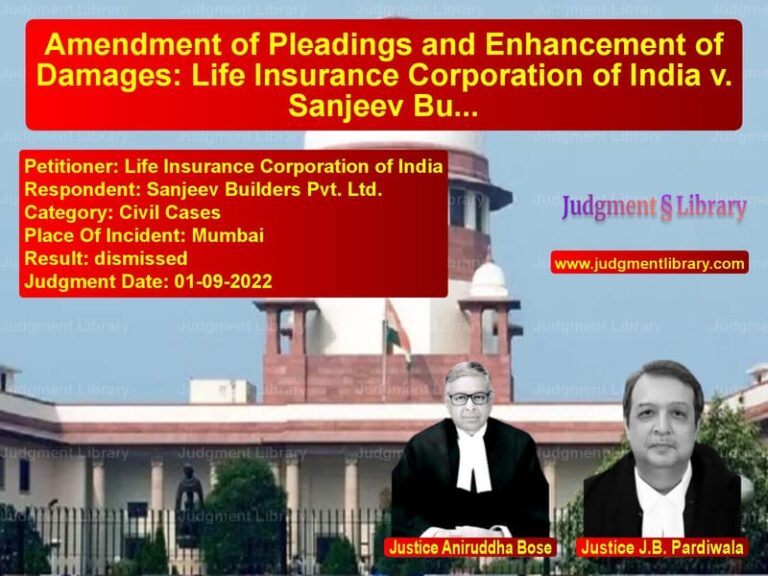Illegal Industrial Units in Delhi: Supreme Court Holds Business Owner in Contempt
The Supreme Court of India recently ruled in a contempt case against Sanjay Gupta for violating its previous orders regarding the closure of unauthorized industrial units in residential areas of Delhi. The case stemmed from the long-standing issue of illegal industrial activities being carried out in non-conforming zones despite multiple court directives mandating their closure. This judgment serves as a strong warning against violations of court orders and reinforces the need for strict enforcement of zoning regulations.
Background of the Case
The dispute originated from a series of public interest litigations (PILs) highlighting unauthorized industrial activities in Delhi’s residential areas. In the landmark case of M.C. Mehta vs. Union of India (2004), the Supreme Court directed the closure of all industrial units operating in non-conforming areas after August 1, 1990. The ruling was meant to address pollution, zoning violations, and unregulated industrial expansion in the capital.
Despite these directives, many businesses continued to operate illegally. One such case involved Sanjay Gupta, who owned a Dal Mill in a residential locality at 87/1, Village Barwala, Bawana Road, Delhi. In 2004, he submitted an affidavit before the Supreme Court, undertaking to shut down his industrial operations. However, it was later discovered that he had resumed his business, leading to contempt proceedings against him.
Arguments of the Petitioner (Jaghbir Singh & Others)
The petitioners, led by Jaghbir Singh, argued that:
- Despite repeated court orders, illegal industrial activities continued in Delhi’s residential areas.
- Sanctioned industrial plots had been provided to affected business owners, but many, including Sanjay Gupta, had refused to relocate.
- Gupta had filed an affidavit in 2004, promising to cease operations, but he had dishonestly resumed business immediately after the premises were desealed.
- Such violations undermined the authority of the Supreme Court and needed to be punished.
Arguments of the Respondent (Sanjay Gupta)
In his defense, Sanjay Gupta claimed:
- He had been searching for alternative premises but failed to find a suitable location.
- Due to a shortage of pulses in the market, he had to continue his Dal Mill operations in public interest.
- He had already shut down two of his three industrial units and was in the process of closing the remaining one.
- He was willing to file another undertaking to permanently discontinue his industrial activities.
Supreme Court’s Analysis and Judgment
The Supreme Court reviewed the long history of its directives regarding unauthorized industrial activities in Delhi. The Court observed:
“There can be no doubt, that the respondent – Sanjay Gupta, by his above acts of omission and commission, has committed contempt of this Court. We hold accordingly.”
The Court highlighted that:
- Gupta had knowingly violated his previous affidavit by continuing industrial activities.
- His business operations had been sealed multiple times, yet he had reopened them in defiance of court orders.
- Delhi’s Master Plan 2021 and zoning regulations were being openly flouted by industrial operators in residential areas.
- His justifications for continuing operations lacked merit, as the Supreme Court’s order was clear and binding.
To ensure strict compliance with its previous orders, the Court issued the following directives:
- Sanjay Gupta was held guilty of contempt of court.
- He was sentenced to 10 days in jail.
- He was fined Rs.10,000 per month for the entire duration of his illegal operations.
- If he failed to deposit the fine, his imprisonment would be extended to three months.
- He was ordered to surrender before the Tilak Marg Police Station in New Delhi by August 1, 2017.
Final Verdict
The Supreme Court took a strict stance against Gupta’s actions, reinforcing its authority and setting an example for future violations. The judgment demonstrated that contempt of court in environmental and zoning matters would not be taken lightly.
Implications of the Judgment
This ruling has far-reaching consequences for illegal industrial activities in residential zones:
- Ensures strict compliance with Supreme Court orders to curb unauthorized industries.
- Holds business owners accountable for violating zoning regulations.
- Reinforces the importance of proper urban planning and environmental regulations.
- Deters future violations by imposing imprisonment and financial penalties.
This case underscores the Supreme Court’s commitment to enforcing zoning laws and ensuring that residential areas in Delhi are free from unauthorized industrial operations.
Don’t miss out on the full details! Download the complete judgment in PDF format below and gain valuable insights instantly!
Download Judgment: Jaghbir Singh & Ors. vs P.K. Tripathi, Chief Supreme Court of India Judgment Dated 10-07-2017.pdf
Direct Downlaod Judgment: Direct downlaod this Judgment
See all petitions in Public Interest Litigation
See all petitions in Fundamental Rights
See all petitions in Constitution Interpretation
See all petitions in Judgment by Jagdish Singh Khehar
See all petitions in Judgment by Dhananjaya Y Chandrachud
See all petitions in allowed
See all petitions in supreme court of India judgments July 2017
See all petitions in 2017 judgments
See all posts in Constitutional Cases Category
See all allowed petitions in Constitutional Cases Category
See all Dismissed petitions in Constitutional Cases Category
See all partially allowed petitions in Constitutional Cases Category







